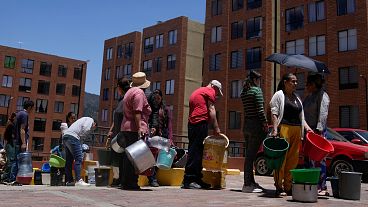Despite our differences, it turns out that respectful discussion can help us to agree on climate action.
Climate change has always been billed as a divisive issue, but research from the US has shown that we might not be as divided as we think.
Experts at Stanford’s Center for Deliberative Democracy brought together a group of 926 randomly selected people representing all political parties, genders, races and more to discuss climate policy in depth. A panel of bipartisan experts were available to answer questions and participants were polled before and after taking part in the event.
The question researchers sought to answer was, what would the American public really think about our climate and energy challenges if it had the chance to deliberate about them in-depth, with balanced information?
As the largest controlled experiment of its kind ever held in the US, it revealed some interesting results. The key point being, that people can come together on key issues such as climate change - particularly if politicians don’t get in the way.
The group’s opinions about the topics they were discussing were measured before and after the event. Throughout, their attitudes shifted significantly, moving towards wanting to do more about climate change.
So what were the results?
On the core matter of whether rising temperatures were caused by greenhouse gas emissions emitted by human activities, 67 per cent agreed before the debate, increasing to 76 per cent after. Support for eliminating fossil fuels, reaching net-zero and discouraging deforestation also grew alongside a whole host of other subjects.
Overall on almost all questions, people from all states and backgrounds moved towards support for climate action.
To work out differences across the political divide, more participants from California (a strongly Democrat state) and Texas (a strongly Republican state) were included than from other locations. But researchers found a surprising amount of agreement between people from the two areas.
“We operate through this prism that the country is incredibly polarised, nobody listens to the other side, and positions don’t change,” says Michael Dennis from NORC at the University of Chicago - one of the groups involved in the experiment.
“But each time we’ve done deliberative polls like America in One Room, we’ve seen a move in the direction of converging public opinion. People tend to moderate their views when given trustworthy information and an opportunity to interact with their fellow citizens.”
On the issue of net-zero, Texans grew closer in agreement with Californians after the discussion. Similarly, Californians moved closer to Texans in agreeing about the need for new nuclear power projects. Three-quarters of those who took part, both Republican and Democrat, said they had “learned a lot about people very different from me.”
And if nothing else, the results of the experiment show that respectful discussion helped people to better understand their own perspectives. Over 90 per cent of participants felt their own positions on the issues presented had become clearer thanks to deliberation.



